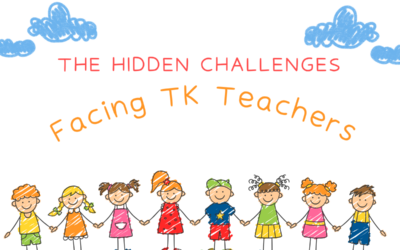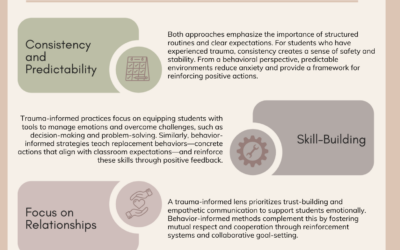This school year has brought so many challenges, more than any of us expected. One student’s behavior that seems to be getting worse, instead of better, is tattling. I am shocked at how much time each day that teachers spend trying to tame the tattling monster.
So what does this look like?
- Students come up and “tattles” on another student
- The teacher has to stop what they are doing and address the tattling (even if they just tell them to not tattle)
- The rest of the class has to wait for that interaction to be over
- The teacher has to spend precious time engaging the class
- “Wash and repeat”
What I am realizing is that students do not have the underlying skills they need to deal with situations that come up, which leads to an increase in tattling.
What can we do differently? We can TEACH those underlying skills that students need so that as they move forward, they can navigate those situations more independently and ultimately handle each interaction on their own!
Here are six skills to focus on.
1. Problem Solving
We either assume that students will learn to problem solve on their own or that they are too young to problem solve on their own. Neither of these is true. If we teach a problem-solving process that is appropriate for their developmental level, they will learn the skill, build confidence in their ability to solve problems and increase their independence in navigating social interactions.
An example of a simple process would be;
- Name what the problem is.
- Come up with two ways you could handle the problem.
- Choose one option.
- Follow up with an adult- did your choice work out the way you wanted?
- If not- what can you do differently next time?
2. Disagreeing Appropriately
It is okay for students to understand that they are not always going to agree with everyone and disagreeing is not “a bad thing” when learning to disagree appropriately.
Teaching this skill can minimize the amount of tattling and build skills that will help them throughout their lives.
An example of the steps to disagree appropriately is;
- Calmly state your point of view
- Listen to the other person’s opinion
- Calmly discuss differences
3. Frustration Tolerance
Interacting with others can be frustrating and this frustration can often lead to much of the tattling that occurs in the classroom. Teaching students “appropriate” ways to deal with their frustration can go a long way to improved behavior throughout the classroom.
- Some frustration tolerance skills are;
- Taking a deep breath
- Walk away from a frustrating situation
- Draw a picture
- Read a book
- Take a break
4. Minding Your Own Business
This is a “back to basics” skill. If students are taught to mind their own business, they will just have less to tattle about!
5. Listening When Others Are Talking
Children and adults alike often struggle to truly listen when others are talking and that can lead to missed messages and avoidable misunderstandings. When children only listen to a part of what another child says, they will sometimes think they hear something that needs to be “tattled.” Being an active and attentive listener will help minimize misunderstandings and limit the amount of tattling that occurs.
6. Taking Another Person’s Perspective
Being able to take someone else’s perspective is a “big” skill that won’t be mastered in the younger grades, but the more we commit to teaching and practicing the skill, the more likely it will be for students to use this skill as they mature and grow.
And if all else fails, try the Tattle Ear. I just fell in love with this process when I was in a kindergarten classroom recently. This is how the Tattle Ear works.
- If a student needs to tattle they go to the tattle ear (plastic or paper ear)
- They tattle into the ear
- If they feel they need to still tell you, they will need to come in during recess or free playtime. (you can also use a tattle form they need to fill out)
Remember~You can love teaching and still have a life. At Teaching Untangled we provide courses & connections for overwhelmed teachers to help you reignite your passion for teaching.





